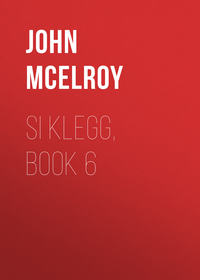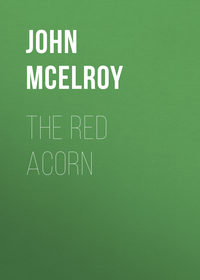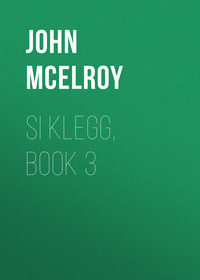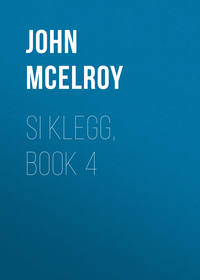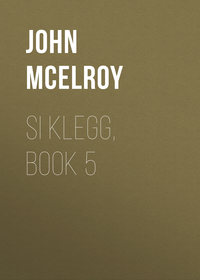
Полная версия
Andersonville A Story of Rebel Military Prisons
OUR NEW QUARTERS AT CAMP LAWTON--BUILDING A HUT--AN EXCEPTIONAL COMMANDANT--HE IS a GOOD MAN, BUT WILL TAKE BRIBES--RATIONS.
CHAPTER LX.
THE RAIDERS REAPPEAR ON THE SCENE--THE ATTEMPT TO ASSASSINATE THOSE WHO WERE CONCERNED IN THE EXECUTION--A COUPLE OF LIVELY FIGHTS, IN WHICH THE RAIDERS ARE DEFEATED--HOLDING AN ELECTION.
CHAPTER LXI.
THE REBELS FORMALLY PROPOSE TO US TO DESERT TO THEM--CONTUMELIOUS TREATMENT OF THE PROPOSITION--THEIR RAGE--AN EXCITING TIME--AN OUTBREAK THREATENED--DIFFICULTIES ATTENDING DESERTION TO THE REBELS.
CHAPTER LXII.
SERGEANT LEROY L. KEY--HIS ADVENTURES SUBSEQUENT TO THE EXECUTIONS-- HE GOES OUTSIDE AT ANDERSONVILLE ON PAROLE--LABORS IN THE COOK-HOUSE-- ATTEMPTS TO ESCAPE--IS RECAPTURED AND TAKEN TO MACON--ESCAPES FROM THERE, BUT IS COMPELLED TO RETURN--IS FINALLY EXCHANGED AT SAVANNAH.
CHAPTER LXIII.
DREARY WEATHER--THE COLD RAINS DISTRESS ALL AND KILL HUNDREDS--EXCHANGE OF TEN THOUSAND SICK--CAPTAIN BOWES TURNS A PRETTY, BUT NOT VERY HONEST, PENNY.
CHAPTER LXIV
ANOTHER REMOVAL--SHERMAN'S ADVANCE SCARES THE REBELS INTO RUNNING US AWAY FROM MILLEN--WE ARE TAKEN TO SAVANNAH, AND THENCE DOWN THE ATLANTIC & GULF ROAD TO BLACKSHEAR
CHAPTER LXV.
BLACKSHEAR AND PIERCE COUNTRY--WE TAKE UP NEW QUARTERS, BUT ARE CALLED OUT FOR EXCHANGE--EXCITEMENT OVER SIGNING THE PAROLE--A HAPPY JOURNEY TO SAVANNAH--GRIEVOUS DISAPPOINTMENT
CHAPTER LXVI.
SPECIMEN CONVERSATION WITH AN AVERAGE NATIVE GEORGIAN--WE LEARN THAT SHERMAN IS HEADING FOR SAVANNAH--THE RESERVES GET A LITTLE SETTLING DOWN.
CHAPTER LXVII.
OFF TO CHARLESTON--PASSING THROUGH THE RICE SWAMPS--TWO EXTREMES OF SOCIETY--ENTRY INTO CHARLESTON--LEISURELY WARFARE--SHELLING THE CITY AT REGULAR INTERVALS--WE CAMP IN A MASS OF RUINS--DEPARTURE FOR FLORENCE.
CHAPTER LXVIII.
FIRST DAYS AT FLORENCE--INTRODUCTION TO LIEUTENANT BARRETT, THE RED- HEADED KEEPER--A BRIEF DESCRIPTION OF OUR NEW QUARTERS--WINDERS MALIGN INFLUENCE MANIFEST.
CHAPTER LXIX.
BARRETT'S INSANE CRUELTY--HOW HE PUNISHED THOSE ALLEGED TO BE ENGAGED IN TUNNELING--THE MISERY IN THE STOCKADE--MEN'S LIMBS ROTTING OFF WITH DRY GANGRENE.
CHAPTER LXX.
HOUSE AND CLOTHES--EFFORTS TO ERECT A SUITABLE RESIDENCE--DIFFICULTIES ATTENDING THIS--VARIETIES OF FLORENTINE ARCHITECTURE--WAITING FOR DEAD MEN'S CLOTHES--CRAVING FOR TOBACCO.
CHAPTER LXXI.
DECEMBER--RATIONS OF WOOD AND FOOD GROW LESS DAILY--UNCERTAINTY AS TO THE MORTALITY AT FLORENCE--EVEN THE GOVERNMENT'S STATISTICS ARE VERY DEFICIENT--CARE FOB THE SICK.
CHAPTER LXXII.
DULL WINTER DAYS--TOO WEAK AND TOO STUPID To AMUSE OURSELVES--ATTEMPTS OF THE REBELS TO RECRUIT US INTO THEIR ARMY--THE CLASS OF MEN THEY OBTAINED --VENGEANCE ON "THE GALVANIZED"--A SINGULAR EXPERIENCE--RARE GLIMPSES OF FUN--INABILITY OF THE REBELS TO COUNT.
CHAPTER LXXIII.
CHRISTMAS--AND THE WAY THE WAS PASSED--THE DAILY ROUTINE OF RATION DRAWING--SOME PECULIARITIES OF LIVING AND DYING.
CHAPTER LXXIV.
NEW YEAR'S DAY--DEATH OF JOHN H. WINDER--HE DIES ON HIS WAY TO A DINNER --SOMETHING AS TO CHARACTER AND CAREER--ONE OF THE WORST MEN THAT EVER LIVED.
CHAPTER LXXV.
ONE INSTANCE OF A SUCCESSFUL ESCAPE--THE ADVENTURES OF SERGEANT WALTER HARTSOUGH, OF COMPANY K, SIXTEENTH ILLINOIS CAVALRY--HE GETS AWAY FROM THE REBELS AT THOMASVILLE, AND AFTER A TOILSOME AND DANGEROUS JOURNEY OF SEVERAL HUNDRED MILES, REACHES OUR LINES IN FLORIDA.
CHAPTER LXXVI
THE PECULIAR TYPE OF INSANITY PREVALENT AT FLORENCE--BARRETT'S WANTONNESS OF CRUELTY--WE LEARN OF SHERMAN'S ADVANCE INTO SOUTH CAROLINA--THE REBELS BEGIN MOVING THE PRISONERS AWAY--ANDREWS AND I CHANGE OUR TACTICS, AND STAY BEHIND--ARRIVAL OF FIVE PRISONERS FROM SHERMAN'S COMMAND--THEIR UNBOUNDED CONFIDENCE IN SHERMAN'S SUCCESS, AND ITS BENEFICIAL EFFECT UPON US.
CHAPTER LXXVII
FRUITLESS WAITING FOR SHERMAN--WE LEAVE FLORENCE--INTELLIGENCE OF THE FALL OF WILMINGTON COMMUNICATED TO US BY A SLAVE--THE TURPENTINE REGION OF NORTH CAROLINA--WE COME UPON A REBEL LINE OF BATTLE--YANKEES AT BOTH ENDS OF THE ROAD.
CHAPTER LXXVIII.
RETURN TO FLORENCE AND A SHORT SOJOURN THERE--OFF TOWARDS WILMINGTON AGAIN--CRUISING A REBEL OFFICER'S LUNCH--SIGNS OF APPROACHING OUR LINES --TERROR OF OUR RASCALLY GUARDS--ENTRANCE INTO GOD'S COUNTRY AT LAST.
CHAPTER LXXIX.
GETTING USED TO FREEDOM--DELIGHTS OF A LAND WHERE THERE IS ENOUGH OF EVERYTHING--FIRST GLIMPSE OF THE OLD FLAG--WILMINGTON AND ITS HISTORY --LIEUTENANT CUSHING--FIRST ACQUAINTANCE WITH THE COLORED TROOPS--LEAVING FOR HOME--DESTRUCTION OF THE "THORN" BY A TORPEDO--THE MOCK MONITOR'S ACHIEVEMENT.
CHAPTER LXXX
VISIT TO FORT FISHER, AND INSPECTION OF THAT STRONGHOLD--THE WAY IT WAS CAPTURED--OUT ON THE OCEAN SAILING--TERRIBLY SEASICK--RAPID RECOVERY-- ARRIVAL AT ANNAPOLIS--WASHED, CLOTHED AND FED--UNBOUNDED LUXURY, AND DAYS OF UNADULTERATED HAPPINESS.
CHAPTER LXXXII.
CAPTAIN WIRZ THE ONLY ONE OF THE PRISON-KEEPERS PUNISHED--HIS ARREST, TRIAL AND EXECUTION.
CHAPTER LXXXIII.
THE RESPONSIBILITY--WHO WAS TO BLAME FOR ALL THE MISERY--AN EXAMINATION OF THE FLIMSY EXCUSES MADE FOR THE REBELS--ONE DOCUMENT THAT CONVICTS THEM--WHAT IS DESIRED.
LIST OF ILLUSTRATIONS
(The Skipped Numbers were drawings unsuitable for copying.) 1. Frontpiece 2. "War" 8. Cumberland Gap, Looking Eastward 4. A Cavalry Squad 5. The 'Rebels Marching Through Jonesville 6. 'Leven Yards Killing the Rebel 7. A Scared Mule Driver 8. Bugler Sounding "Taps" 9. Company L Gathering to Meet the Rebel Attack 10. The Major Refuses to Surrender 11. Ned Johnson Trying to Kill the Rebel Colonel 12. Girls Astonished at the Jacket Tabs 14. An East Tennesseean 15. A Rebel Dandy 17. Turner in Quest of British Gold 18. Barnacle backs Discouraging a Visit from a Soldier 19. Ross Calling the Roll 20. An Evening's Amusement with the Guards 21. Prisoners' Culinary Outfit 23. Skimming, the Bugs From My Soup 23. "Spooning" 24. A Richmond News Boy 25. "Say, Guard: Do You Want to Buy Some Greenbacks?" 26. A "N'Yaarker" 27. Decoying Boisseux's Dog to Its Death 28. The Dead Scotchman 29. Map of Georgia, South Carolina and part of North Carolina 30. Cooking Rations 31. General John W. Winder 32. A Field hand 33. Scaling the Stockade 34. Captain llenri Wirz 35. The Prize-fight for the Skillet 36. Killing Lice by Singeing 37. Stripping the Dead for Clothes 38. A Plymouth Pilgrim 40. Midnight Attack of the Raiders 41. Ignominious End of a Tunnel Enterprize 42. Tunneling 43. Tattooing the Tunnel Traitor 44. Overpowering a Guard 45. A Master of the Hounds 46. Hounds Tearing a Prisoner 47. Shot at the Creek by the Guard 48. Cooking Mush 49. Seitz on Horseback 50. Finding Seitz Dead 51. A Case of Scurvy 52. Confiscating Soft Soap 63. Religious Services 54. The Priest Anointing the Dying 55. Raider Fight with one of Ellett's Marine Brigade 56. Key Bluffing His Would-be Assassins 67. Rebel Artillerists Training the Cannon on the Prison 58. Overthrow of the Raiders 59. Arrest of Pete Donnelly 60. Death of the Sailor 61. Execution of the Raiders 63. Sergeant A. R, Hill, 100th O. V. I. 63. "Spanking" a Thief 64. The Wounded Illinois Sergeant 65. The Idiotic Flute-Player 66. One of Sherman's "Veterans" 67. "You Hear Me" 68. Logan Taking Command of the Army of the Tennessee 69. Death of M'Pherson 70. The Work of a Shell 71. The Fight for the Flag 72. In the Rifle-pit After the Battle 73. Taken In 74. The Author's Appearance on Entering Prison 75. His Appearance in July, 1864 76. Little Red Cap 77. "Fresh Fish" 78. Interior of the Stockade, Viewed from the Southwest 79. Burying the Dead 80. The Graveyard at Andersonville, as the Rebels Left It 81. Denouncing the Southern Confederacy 82. The Charge 83. "Flagstaff" 84. Nursing a Sick Comrade 65. A Dream 86. The English Bugler 87. The Break in the Stockade 88. At the Spring 89. Morning Assemblage of Sick at the South Gate 91. Old Sailor and Chicken 92. Death of Watts 93. Planning Escape 94. Our Progress was Terribly Slow--Every Step Hurt Fearfully 95. "Come Ashore, There, Quick" 96. He Shrieked Imprecations and Curses 97. The Chain Gang 98. Interior of the Stockade--The Creek at the East Side 99. A Section from the East Side of the Prison Showing the Dead Line 100. "Half-past Eight O'clock, and Atlanta's Gone to H--l!" 101. Off for "God's Country" 102. Georgian Development of the "Proud Caucasian" 103. It was Very Unpleasant When a Storm Came Up 104. When We Matched Our Intellects Against a Rebel's 107. His New Idea was to have a Heavily Laden Cart Driven Around Inside the Dead Line 108. They Stood Around the Gate and Yelled Derisively 110. "See Heah; You Must Stand Back!" 111. He Bade Them Goodbye 112. "Wha-ah-ye!" 114. One of Ferguson's Cavalry 115. Then the Clear Blue Eyes and Well-remembered Smile 117. Millen 118. A House Builded With Our Own Own Hands 119. Our First Meat 120. A Lucky Find 121. Sergeant L. L. Key 124. "Where Are You Going, You D--d Yank?" 127. "Who Mout These Be?" 128. A Roadside View 129. The Charleston & Savannah Railroad 131. A Rice Field Girl 132. A Rice Swamp 133. A Scene in the "Burnt District" 134. The Part Where We Lay Was a Mass of Ruins 135. Ruins of St. Finbar Cathedral 136. The Unlucky Negro Fell, Pierced by a Score of Bullets 137. Recapture of the Runaways 139. "Take These Shears and Cut My Toes Off" 140. Corporal John W. January 142. Andrews Managed to Fish Out the Bag and Pass to Me Three Roasted Chickens 143. In God's Country at Last 144. Map of Wilmington and Neighborhood 148. The Infantry Assault on Fort Fisher 149. They Removed Every Trace of Prison Grime 152. Trial of Captain Wirz 153. Execution of Captain Wirz 154. "Peace"INTRODUCTION.
The fifth part of a century almost has sped with the flight of time since the outbreak of the Slaveholder's Rebellion against the United States. The young men of to-day were then babes in their cradles, or, if more than that, too young to be appalled by the terror of the times. Those now graduating from our schools of learning to be teachers of youth and leaders of public thought, if they are ever prepared to teach the history of the war for the Union so as to render adequate honor to its martyrs and heroes, and at the same time impress the obvious moral to be drawn from it, must derive their knowledge from authors who can each one say of the thrilling story he is spared to tell: "All of which I saw, and part of which I was."
The writer is honored with the privilege of introducing to the reader a volume written by an author who was an actor and a sufferer in the scenes he has so vividly and faithfully described, and sent forth to the public by a publisher whose literary contributions in support of the loyal cause entitle him to the highest appreciation. Both author and publisher have had an honorable and efficient part in the great struggle, and are therefore worthy to hand down to the future a record of the perils encountered and the sufferings endured by patriotic soldiers in the prisons of the enemy. The publisher, at the beginning of the war, entered, with zeal and ardor upon the work of raising a company of men, intending to lead them to the field. Prevented from carrying out this design, his energies were directed to a more effective service. His famous "Nasby Letters" exposed the absurd and sophistical argumentations of rebels and their sympathisers, in such broad, attractive and admirable burlesque, as to direct against them the "loud, long laughter of a world!" The unique and telling satire of these papers became a power and inspiration to our armies in the field and to their anxious friends at home, more than equal to the might of whole battalions poured in upon the enemy. An athlete in logic may lay an error writhing at his feet, and after all it may recover to do great mischief. But the sharp wit of the humorist drives it before the world's derision into shame and everlasting contempt. These letters were read and shouted over gleefully at every camp-fire in the Union Army, and eagerly devoured by crowds of listeners when mails were opened at country post-offices. Other humorists were content when they simply amused the reader, but "Nasby's" jests were argumentsthey had a meaning—they were suggested by the necessities and emergencies of the Nation's peril, and written to support, with all earnestness, a most sacred cause.
The author, when very young, engaged in journalistic work, until the drum of the recruiting officer called him to join the ranks of his country's defenders. As the reader is told, he was made a prisoner. He took with him into the terrible prison enclosure not only a brave, vigorous, youthful spirit, but invaluable habits of mind and thought for storing up the incidents and experiences of his prison life. As a journalist he had acquired the habit of noticing and memorizing every striking or thrilling incident, and the experiences of his prison life were adapted to enstamp themselves indelibly on both feeling and memory. He speaks from personal experience and from the stand-paint of tender and complete sympathy with those of his comrades who suffered more than he did himself. Of his qualifications, the writer of these introductory words need not speak. The sketches themselves testify to his ability with such force that no commendation is required.
This work is needed. A generation is arising who do not know what the preservation of our free government cost in blood and suffering. Even the men of the passing generation begin to be forgetful, if we may judge from the recklessness or carelessness of their political action. The soldier is not always remembered nor honored as he should be. But, what to the future of the great Republic is more important, there is great danger of our people under-estimating the bitter animus and terrible malignity to the Union and its defenders cherished by those who made war upon it. This is a point we can not afford to be mistaken about. And yet, right at this point this volume will meet its severest criticism, and at this point its testimony is most vital and necessary.
Many will be slow to believe all that is here told most truthfully of the tyranny and cruelty of the captors of our brave boys in blue. There are no parallels to the cruelties and malignities here described in Northern society. The system of slavery, maintained for over two hundred years at the South, had performed a most perverting, morally desolating, and we might say, demonizing work on the dominant race, which people bred under our free civilization can not at once understand, nor scarcely believe when it is declared unto them. This reluctance to believe unwelcome truths has been the snare of our national life. We have not been willing to believe how hardened, despotic, and cruel the wielders of irresponsible power may become.
When the anti-slavery reformers of thirty years ago set forth the cruelties of the slave system, they were met with a storm of indignant denial, villification and rebuke. When Theodore D. Weld issued his "Testimony of a Thousand Witnesses," to the cruelty of slavery, he introduced it with a few words, pregnant with sound philosophy, which can be applied to the work now introduced, and may help the reader better to accept and appreciate its statements. Mr. Weld said:
"Suppose I should seize you, rob you of your liberty, drive you into the field, and make you work without pay as long as you lived. Would that be justice? Would it be kindness? Or would it be monstrous injustice and cruelty? Now, is the man who robs you every day too tender-hearted ever to cuff or kick you? He can empty your pockets without remorse, but if your stomach is empty, it cuts him to the quick. He can make you work a life-time without pay, but loves you too well to let you go hungry. He fleeces you of your rights with a relish, but is shocked if you work bare-headed in summer, or without warm stockings in winter. He can make you go without your liberty, but never without a shirt. He can crush in you all hope of bettering your condition by vowing that you shall die his slave, but though he can thus cruelly torture your feelings, he will never lacerate your back—he can break your heart, but is very tender of your skin. He can strip you of all protection of law, and all comfort in religion, and thus expose you to all outrages, but if you are exposed to the weather, half-clad and half-sheltered, how yearn his tender bowels! What! talk of a man treating you well while robbing you of all you get, and as fast as you get it? And robbing you of yourself, too, your hands and feet, your muscles, limbs and senses, your body and mind, your liberty and earnings, your free speech and rights of conscience, your right to acquire knowledge, property and reputation, and yet you are content to believe without question that men who do all this by their slaves have soft hearts oozing out so lovingly toward their human chattles that they always keep them well housed and well clad, never push them too hard in the field, never make their dear backs smart, nor let their dear stomachs get empty!"
In like manner we may ask, are not the cruelties and oppressions described in the following pages what we should legitimately expect from men who, all their lives, have used whip and thumb-screw, shot-gun and bloodhound, to keep human beings subservient to their will? Are we to expect nothing but chivalric tenderness and compassion from men who made war on a tolerant government to make more secure their barbaric system of oppression?
These things are written because they are true. Duty to the brave dead, to the heroic living, who have endured the pangs of a hundred deaths for their country's sake; duty to the government which depends on the wisdom and constancy of its good citizens for its support and perpetuity, calls for this "round, unvarnished tale" of suffering endured for freedom's sake.
The publisher of this work urged his friend and associate in journalism to write and send forth these sketches because the times demanded just such an expose of the inner hell of the Southern prisons. The tender mercies of oppressors are cruel. We must accept the truth and act in view of it. Acting wisely on the warnings of the past, we shall be able to prevent treason, with all its fearful concomitants, from being again the scourge and terror of our beloved land.
ROBERT McCUNE.
AUTHOR'S PREFACE
Fifteen months ago—and one month before it was begun—I had no more idea of writing this book than I have now of taking up my residence in China.
While I have always been deeply impressed with the idea that the public should know much more of the history of Andersonville and other Southern prisons than it does, it had never occurred to me that I was in any way charged with the duty of increasing that enlightenment.
No affected deprecation of my own abilities had any part is this. I certainly knew enough of the matter, as did every other boy who had even a month's experience in those terrible places, but the very magnitude of that knowledge overpowered me, by showing me the vast requirements of the subject-requirements that seemed to make it presumption for any but the greatest pens in our literature to attempt the work. One day at Andersonville or Florence would be task enough for the genius of Carlyle or Hugo; lesser than they would fail preposterously to rise to the level of the theme. No writer ever described such a deluge of woes as swept over the unfortunates confined in Rebel prisons in the last year-and-a-half of the Confederacy's life. No man was ever called upon to describe the spectacle and the process of seventy thousand young, strong, able-bodied men, starving and rotting to death. Such a gigantic tragedy as this stuns the mind and benumbs the imagination.
I no more felt myself competent to the task than to accomplish one of Michael Angelo's grand creations in sculpture or painting.
Study of the subject since confirms me in this view, and my only claim for this book is that it is a contribution—a record of individual observation and experience—which will add something to the material which the historian of the future will find available for his work.
The work was begun at the suggestion of Mr. D. R. Locke, (Petroleum V. Nasby), the eminent political satirist. At first it was only intended to write a few short serial sketches of prison life for the columns of the TOLEDO BLADE. The exceeding favor with which the first of the series was received induced a great widening of their scope, until finally they took the range they now have.
I know that what is contained herein will be bitterly denied. I am prepared for this. In my boyhood I witnessed the savagery of the Slavery agitation—in my youth I felt the fierceness of the hatred directed against all those who stood by the Nation. I know that hell hath no fury like the vindictiveness of those who are hurt by the truth being told of them. I apprehend being assailed by a sirocco of contradiction and calumny. But I solemnly affirm in advance the entire and absolute truth of every material fact, statement and description. I assert that, so far from there being any exaggeration in any particular, that in no instance has the half of the truth been told, nor could it be, save by an inspired pen. I am ready to demonstrate this by any test that the deniers of this may require, and I am fortified in my position by unsolicited letters from over 3,000 surviving prisoners, warmly indorsing the account as thoroughly accurate in every respect.
It has been charged that hatred of the South is the animus of this work. Nothing can be farther from the truth. No one has a deeper love for every part of our common country than I, and no one to-day will make more efforts and sacrifices to bring the South to the same plane of social and material development with the rest of the Nation than I will. If I could see that the sufferings at Andersonville and elsewhere contributed in any considerable degree to that end, and I should not regret that they had been. Blood and tears mark every step in the progress of the race, and human misery seems unavoidable in securing human advancement. But I am naturally embittered by the fruitlessness, as well as the uselessness of the misery of Andersonville. There was never the least military or other reason for inflicting all that wretchedness upon men, and, as far as mortal eye can discern, no earthly good resulted from the martyrdom of those tens of thousands. I wish I could see some hope that their wantonly shed blood has sown seeds that will one day blossom, and bear a rich fruitage of benefit to mankind, but it saddens me beyond expression that I can not.


